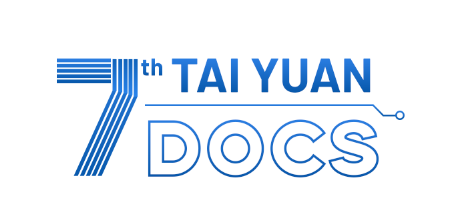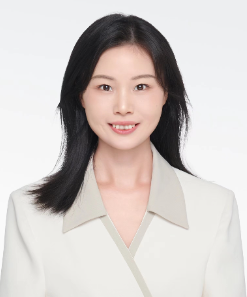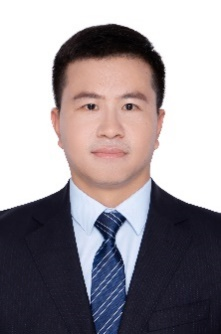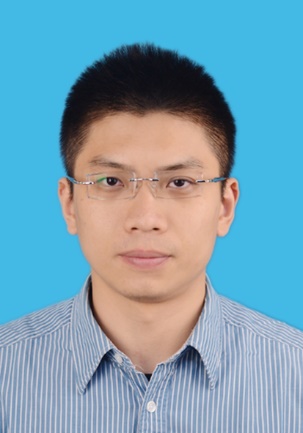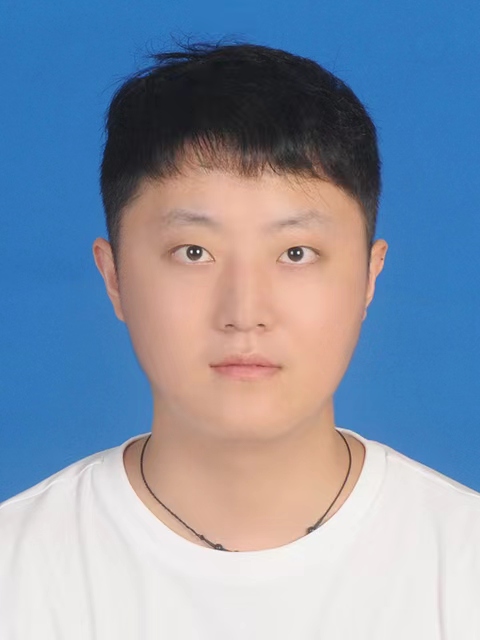| Prof. Cuie YangNortheastern University, China Professor Yang Cuie is a doctoral supervisor at the National Key Laboratory of Synthetical Automation for Process Industries, Northeastern University, specializing in transferable computational intelligence algorithms and their applications. During her Ph.D., she conducted research visits at the National University of Singapore and George Mason University (USA), subsequently completing postdoctoral research at Hong Kong Baptist University and Victoria University of Wellington. She currently serves as Associate Editor for IEEE Transactions on Neural Networks and Learning Systems (TNNLS) and peer reviewer for multiple prestigious international journals and conferences. With over 20 peer-reviewed publications to her credit, Professor Yang has received numerous honors including: the First Prize of Liaoning Natural Science Award (as 3rd contributor), Liaoning Outstanding Master's Thesis Award, CAA Outstanding Doctoral Dissertation Nomination Award, selection among China's Top 100 Most Influential Domestic Academic Papers, and Top Articles of China (Frontrunner F5000). She has been recognized as a Young Top-Notch Talent under Liaoning Province's 6th Revitalization Talents Program. Title: Transfer Evolutionary Optimization and Applications Abstract: Real world optimization problems often exhibit complex challenges such as computationally expensive evaluations, multimodal fitness landscapes, multi-objective requirements, and dynamic and mutable conditions, posing significant difficulties for traditional evolutionary optimization methods. Transfer Evolutionary Optimization algorithms tackle these challenges by leveraging transfer learning toeffectively transferthe knowledge and accumulated experience gained from known optimization problems to solvenew, different yet related optimization problems. Furthermore, knowledge transfercan overcomethe traditional requirement demanding substantial computational power and resources as prerequisites for evolutionary optimization algorithms, thereby enhancing their generalization capabilities. This presentation will share insights intothe mining of knowledge, the migration of this knowledge, and the utilization of transferred knowledge within intelligent optimization algorithms, as well as the application of Transfer Evolutionary Optimization algorithms in areas likedata-driven optimizationand computationally expensive optimization problems. |
| Prof. Kunjie YuZhengzhou University, China Kunjie Yu, a distinguished professor at Zhengzhou University and a doctoral supervisor, is a high-level talent in Henan Province, a leading young talent in Central Plains, a provincial outstanding youth in Henan, and a talent for scientific and technological innovation in Henan Province. He is also the deputy director of the Henan Province Engineering Research Center for Optimization and Intelligent Control Technology. His research focuses on the theory and application of swarm intelligence optimization. He has successively presided over three projects of the National Natural Science Foundation of China and eleven provincial and ministerial-level projects including the Key Research and Development Program of Henan Province. He has published over 60 SCI-indexed papers in IEEE Transactions on Evolutionary Computation, IEEE Transactions on Cybernetics, IEEE Transactions on Systems, Man, and Cybernetics: Systems, and other top journals, among which over 40 are first or corresponding author papers. His Google Scholar citations exceed 7,000, with an H-index of 39. He has 14 ESI highly cited papers and 1 ESI hot paper. He has been listed on the top 2% of the world's scientists by Stanford University for five consecutive years. He has received awards such as the National Excellent Postdoctoral Award for Innovation and Entrepreneurship, the Young Scientist Award of the Intelligent Simulation Optimization and Scheduling Professional Committee of the Chinese Society of Simulation, and the First Prize of Scientific and Technological Achievements of the Henan Provincial Department of Education. He serves as an editorial board member of three international SCI journals, the deputy secretary-general of the Intelligent Simulation Optimization and Scheduling Professional Committee of the Chinese Society of Simulation, a member of the Youth Working Committee of the Chinese Association for Artificial Intelligence, and a member of the Youth Working Committee of the Chinese Association of Automation. Title: Constrained Multiobjective Evolutionary Optimization Abstract: As a typical problem in the field of optimization research, constrained multi-objective optimization problems are ubiquitous in industrial applications and scientific research. To solve such problems, it is necessary to simultaneously optimize multiple conflicting objectives under various constraints. How to efficiently and accurately find the Pareto optimal solution set that compromises multiple objectives and satisfies the constraints has always been the focus of research. This report will introduce the challenges brought by the existence of complex constraints to optimization problems, as well as existing related research work. Subsequently, it will present the research progress of the team in constrained multi-objective optimization, dynamic constrained multi-objective optimization, constrained multimodal multi-objective optimization, and the design of algorithm recommendation systems, as well as the application research of algorithms in practical scenarios such as personalized drug target identification for cancer, production scheduling in process industries, and collaborative scheduling of multiple agricultural machinery. In addition, the report will also discuss the current challenges and opportunities in constrained evolutionary optimization. |
| Assoc. Prof. Hao LiXidian University, China Li Hao is an Associate Professor and Ph.D. Supervisor at Xidian University, where he serves as Deputy Director of the Department of Electronic Engineering. Recognized with multiple honors including the Shaanxi Outstanding Doctoral Dissertation Award, Shaanxi Young Talent Support Program. He has received prestigious awards such as the second prize from the Chinese Association for System Simulation and first/second prizes from Shaanxi Electronic Society. His research focuses on multi-objective learning and optimization theory, leading over 10 competitive projects including NSFC funds, defense funds, and the CAAI-Huawei MindSpore Academic fund. He actively contributes to academic communities through roles in IEEE Neural Networks Society and others. Title: Evolutionary Computation based on Knowledge Security Transfer Abstract: Evolutionary computation faces significant challenges in knowledge transfer, including the underutilization of large-scale heterogeneous knowledge and the risk of privacy leakage, which hinder its practical applications. This report addresses these issues from two perspectives: avoiding "harmful" knowledge transfer and protecting "privacy" knowledge transfer. First, by aligning large-scale heterogeneous knowledge, we design a transfer stack-based secure knowledge transfer method to enhance the efficiency of large-scale heterogeneous knowledge transfer. Second, based on competitive or collaborative relationships among tasks, we develop a task reward-based resource allocation theory for secure competitive/collaborative knowledge transfer. Third, under constraints such as communication resources, encryption resources, and computational resources, we construct a privacy-preserving evolutionary multitasking knowledge transfer model using advanced privacy protection techniques. Finally, based on these theoretical results, we conduct research on deep-learning adversarial attacks. |
| Prof. Wei DuEast China University of Science and Technology, China DU Wei is a Professor and Ph.D. supervisor at East China University of Science and Technology, IEEE Senior Member, a recipient of the Shanghai Rising-Star Program for Young Scientists and the Shanghai Sailing Program for Young Talents. He received his Ph.D. in Systems Engineering from The Hong Kong Polytechnic University in 2016. His research interests include machine learning-assisted evolutionary optimization, large-scale optimization, robust optimization, and decision-making optimization for complex industrial processes. In recent years, he has published over 50 SCI-indexed papers, including 26 in IEEE Transactions (17 as first or corresponding author). He holds 21 granted Chinese invention patents and 8 registered software copyrights. Title: New Perspectives on Decomposition-Based Large-Scale Global Optimization Abstract: When addressing large-scale global optimization problems, the complex coupling between variables and high-dimensional characteristics often lead traditional optimization algorithms to suffer from the “curse of dimensionality,” making it difficult to balance efficiency and accuracy. This talk centers on the core concept of “decomposition,” and proposes several new theoretical analyses and decomposition methods, forming a systematic new perspective on such problems, focusing on structure identification and efficient optimization in large-scale settings. First, starting from the interaction relationships among variables, the talk systematically reviews the definitional framework of decomposability in large-scale optimization problems, including additive vs. non-additive and strongly vs. weakly separable cases. It further introduces the minimum points shift principle and, based on this, develops a generalized separable grouping method to identify more generic decoupling structures among variables. Second, for complex optimization problems characterized by strong variable dependencies and frequent overlaps, the talk proposes a “pre-analysis + accuracy compensation” paradigm for problem structure identification. This approach efficiently uncovers underlying structures at a very low computational cost, laying a foundation for subsequent decomposition and optimization and significantly improving solution efficiency. Finally, building on the aforementioned structure identification methods, the talk develops a reinforcement learning-based decomposition and optimization framework for large-scale overlapping problems. By learning from the optimization feedback of different grouping schemes, this framework progressively achieves optimal decomposition and optimization for such complex problems. |
| Assoc. Prof. Shufen QinTaiyuan University of Science and Technology, China Shufen Qin, an associate professor at the School of Computer Science and Technology, Taiyuan University of Science and Technology, is a master's supervisor. Her research focuses on data-driven complex multi-objective optimization and large-scale multi-objective optimization. In 2023, she was selected as an outstanding doctoral dissertation in Shanxi Province. She has led a National Natural Science Foundation of China Youth Project, a Youth Project of Shanxi Province Basic Research Program, an Outstanding Doctoral Project for Coming to Work in Shanxi, and a Project of Shanxi Province Higher Education Institution Science and Technology Innovation Program. She has also received a Doctoral Startup Fund. As a core member of the project, she has participated in multiple National Natural Science Foundation of China General Projects and key research and development projects of Shanxi Province. She has published over ten academic papers as the first author in journals and conferences such as IEEE Transactions on Evolutionary Computation (TEVC), Swarm and Evolutionary Computation (SWEC), Complex & Intelligent Systems (CAIS), Control and Decision, and IEEE CEC.) Title: Data-driven complex multi-objective optimization Abstract: Incurrentdata-intensive environment, the high-dimensional multi-objective optimization problems of complex systems are increasingly highlightingthesignificance.For many practical problems, the objective function evaluations often involve expensive computational or experimental costs, such as high-fidelity simulation, physical experiments, or large-scale data analysis. Traditional optimization methods often struggle to efficiently solve such problems due to limited computational resources or excessively high time costs. Data-driven optimization methods, by integrating advanced machine learning techniques with intelligent optimization algorithms, offer a new perspective and tools for addressing these issues. This report aims to explore how to utilize data-driven technologies to achieve efficient modeling, analysis, and decision support in complex high-dimensional multi-objective optimization, significantly reducing the costs in the optimization process while enhancing the quality and diversity of solutions. It will briefly outline the core concepts of data-driven optimization methods, with a focus on the key steps of model construction, model management, and model optimization, ensuring the efficiency of the optimization process.It’s expected to provide theoretical support for expensive and complex multi-objective optimization and lay a solid foundation for the application of data-driven technologies in decision support systems. |
| Asst. Prof. Peng YangSouthern University of Science and Technology, China Peng Yang received his B.Sc. and Ph.D. degrees in the Department of Computer Science and Technology from University of Science and Technology of China in 2012 and 2017, respectively. From 2017 to 2018, he was a Senior Engineer in Huawei and then he joined Southern University of Science and Technology (SUSTech). He is currently a tenure-track assistant professor jointly in the Department of Statistics and Data Science and the Department of Computer Science and Engineering at SUSTech. His research interests include Financial Time Series Analysis,Evolutionary Computation,Reinforcement Learning, and Multi-agent Simulation. He has published over50 papers in top journals and conferences likeSCIS,TEVC,TSP, TRO, TCSS,TCYB, JSAC, TASE and NeurIPS. He has also been authorized with 13 invention patents by China, USA, and Germany. He has served as theeditoral board orreviewer for top-tier journals and the AC, SPC or PC of top AI conferences. He is the vice chair of IEEE CIS Evolutionary Learning Task Force, an executive member of CCF Computational Economics Committee and CCF AI Multi-agent System Committee, and a member of IEEE CIS Evolutionary Computation Technical Committee. Title: Alleviating Non-identifiability: a High-fidelity Calibration Objective for Financial Market Simulation with Multivariate Time Series Data Abstract: The non-identifiability issue has been frequently reported in social simulation works, where different parameters of an agent-based simulation model yield indistinguishable simulated time series data under certain discrepancy metrics. This issue largely undermines the simulation fidelity yet lacks dedicated investigations. This paper theoretically demonstrates that incorporating multiple time series data features during the model calibration phase can exponentially alleviate non-identifiability as the number of features increases. To implement this theoretical finding, a maximization-based aggregation function is proposed based on existing discrepancy metrics to form a new calibration objective function. For verification, the task of calibrating the Financial Market Simulation (FMS), a typical yet complex social simulation, is considered. Empirical studies confirm the significant improvements in alleviating the non-identifiability of calibration tasks. Furthermore, as a model-agnostic method, it achieves much higher simulation fidelity of the chosen FMS model on both synthetic and real market data. Moreover, it is both theoretically and empirically analyzed that as long as the features are selected and not linearly correlated, they can contribute to alleviation, which demonstrates the robustness of the proposed objective. Hence, this work is expected to provide not only a rigorous understanding of non-identifiability in social simulation but also an off-the-shelf high-fidelity calibration objective function for FMS. |
| Assoc. Prof. Peiqiu HuangCentral South University, China Peiqiu Huang is an Associate Professor and Master Supervisor at the School of Automation, Central South University. He received his B.S. in Automation and M.S. in Control Theory and Control Engineering from Northeastern University, Shenyang, China, in 2014 and 2017, respectively. He earned his Ph.D. in Control Science and Engineering from Central South University, Changsha, China, in 2021. From 2021 to 2023, he was a postdoctoral fellow at the City University of Hong Kong. His research focuses on evolutionary computation, bilevel optimization, multi-objective optimization, and their applications in wireless network optimization. As the first or corresponding author, he has published over 10 papers in top IEEE journals, including IEEE TEVC, IEEE TCYB, IEEE TSMC, and IEEE TNSE. He has been supported by the Postdoctoral Overseas Talent Introduction Program and the Research Talent Hub for ITF projects. Title: 进化双层优化及其应用 Abstract: Bilevel optimization problems are prevalent in engineering practices and scientific research, characterized by their intricate nested structures. When addressing complex bilevel optimization problems, traditional mathematical programming methods impose stringent requirements on problem properties. In contrast, evolutionary algorithms (EAs) have emerged as effective solvers due to their global search capabilities. However, EAs typically demand numerous fitness evaluations when applied to bilevel optimization, resulting in inefficient computational efficiency. This presentation will outline our research advancements in evolutionary bilevel optimization algorithms, including a multi-task cooperative optimization approach and a divide-and-conquer framework, along with the application in resource management for mobile edge computing. |
| Lecturer Jianyu LiNankai University, China Jian-Yu Li (Member, IEEE) received the Bachelor’s degree and the Ph. D. degree in Computer Science and Technology from the South China University of Technology, China, in 2018 and 2022, respectively. He is currently a visiting professor at Hanyang University in Korea and serves as an associate professor at Nankai University. His research interests primarily include computational intelligence, data-driven optimization, machine learning, and their applications in real-world problems, as well as in environments involving largelanguage models and big data. He was a recipient of the Doctoral Dissertation Incentive Program from the Chinese Association for Artificial Intelligence in 2025, the Most-Cited Paper Award from the Machine Intelligence Research in 2024, the Outstanding Paper Award from the CAAI Transactions on Intelligent Systems, and the Outstanding Reviewer from the Machine Intelligence Research in 2024. He is listed as the World’s Top 2% Scientist for Year Impact in Artificial Intelligence. He has been invited to serve as a reviewer fortheIEEE Transactions on Evolutionary Computation, theIEEE Transactions on Cybernetics, and the IEEE Transactions on Artificial Intelligence. Title: A New Paradigm of Evolutionary Intelligence: Knowledge-Learning-Driven Self-Evolutionary Expensive Optimization Methods Abstract: In the era of “AI + Everything,” optimization and intelligence have become the twin engines propelling societal progress and the forging of new, high-quality productive forces. They are also the indispensable path by which artificial intelligence ascends to its next level. Fueled by the rapid advancement of IoT, cloud computing, large language models, 5G, blockchain, and other cutting-edge technologies, the landscape of optimization problems has grown dramatically more complex, presenting us with large-scale, multi-objective, multi-task, and computationally intensive challenges that traditional optimizers struggle to handle. Evolutionary computation stands out for its observable, perceivable, comprehensible, explainable, and controllable characteristics. In recent years, they have proven highly effective for knowledge discovery, search, and problem solving. Yet, when candidate evaluations are expensive, these conventional approaches still fall short in terms of computational efficiency. This talk presents a new paradigm of evolutionary intelligence that leverages knowledge learning to drive self-evolution in evolutionary algorithms, enabling efficient problem solving of expensive optimization problems. We will summarize our latest advances in generative methods, multi-model ensembles, and meta-knowledge transfer. Together, these innovations offer fresh perspectives and powerful tools for tackling highly complex optimization tasks, paving the way for the next stage of AI development. |
| Lecturer Chao LiZhongyuan University of Technology, China Li Chao received Ph.D. degree from Xidian University, currently works at Zhongyuan University of Technology. He has published over 20 academic papers in top international journals such as IEEE TPAMI, IEEE TEVC, and CCF-A conferences. One paper was awarded the Spotlight Paper by IEEE TEVC. His research primarily focuses on adversarial attacks and defenses, multi-modal multi-objective optimization and surrogate model-assisted evolutionary optimization. Title: Black-box adversarial attacks for image classification tasks Abstract: Adversarial attack techniques represented by adversarial examples reveal the vulnerability of deep neural networks, in which black-box adversarial attacks are unable to utilize the internal knowledge of the model, and it can only use the output information of the model to generate the adversarial examples, therefore, black-box adversarial attacks are more challenging and in line with the real-world scenarios. Currently, there are two types of attack paradigms for black-box adversarial attacks: query-based and transfer-based black-box adversarial attacks. Although some progress has been made on the above two types of black-box attacks, there are still some problems that need to be solved. For example, in query-based methods, the dimension of the optimization variables is usually higher, which is easy to make the optimization algorithm fall into the local optimum and require more model queries, reducing the efficiency of the attack. In transfer-based methods, the transferability of adversarial example between different model structures is poor. This report analyzes the above mentioned problems and proposes correspondingmethods. |
